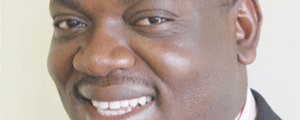
THE elements of autonomy, responsibility and accountability need to be clearly defined in an organisation if the efforts to fight procurement corruption and fraud are to yield any results.
Opinion by Nyasha Chizu
These elements are effectively allocated by appropriate organisational structures. Procurement structure is important to define the levels of procurement decision-making. If properly crafted, organisational structures enhance ethical behaviour in procurement activities.
Ethics in organisations is two pronged; there is an individualistic approach and a communal approach. These two approaches have different views to moral responsibility.
The issue of ethics is enshrined in the individualistic approach more than the communal approach.
Individualistic approach considers an individuals’ to be morally responsible for their own behaviour and any effort to change that behaviour should focus on the individual.
The communal approach in contrast, views individuals not in isolation, but as members of communities that are partially responsible for the behaviour of their members.
Herein lie the fundamental principle of the problems associated with assigning responsibility and accountability in procurement decision-making.
- Chamisa under fire over US$120K donation
- Mavhunga puts DeMbare into Chibuku quarterfinals
- Pension funds bet on Cabora Bassa oilfields
- Councils defy govt fire tender directive
Keep Reading
Corporations, like individuals, are not set out to do wrong – they are simply driven by egoism when one acts in their own interest.
That definition arises from an organisational structure that recognises procurement as a special and technical activity, and allocates appropriate responsibility to specific individuals.
The critical issue in procurement structures is to ensure that the professional is identified and offloaded such responsibility and accountability. The structure may, therefore, enhance autonomy in procurement decision-making.
Traditionally, the procurement function is undoubtedly the most problematic for assigning responsibility and accountability due to uncontrolled egos of powerful individuals in organisations.
Secondly, there is a requirement to make an appropriate decision on the level of centralisation and decentralisation of the procurement function.
Complex organisations tend to lean towards decentralised procurement decision-making, which would require professionalised decision-makers at every level.
The ideal will be for both the responsibility and accountability of procurement decision-making to correlate.
As organisations become complex, procurement decentralisation tends to dilute accountability in decision-making. Moral buck passing often becomes the norm rather than the exception. It is easy to blame others in procurement decisions when your contribution was minimal.
The procurement function is subsumed within most institutions and decision-making can become attenuated and accountability is spread thin. Structures, therefore, tend to affect the way procurement decisions are made.
To ensure that moral buck passing is eliminated, organisational hierarchy must not dilute responsibility and accountability in procurement decision-making.
The dilution of accountability frustrates onlookers, the general public and the law enforcement authorities in that they can’t determine who to blame when things go wrong in procurement.
Nyasha Chizu is a Fellow of CIPS and the CIPS Zimbabwe branch chairman writing in his personal capacity. Feedback: [email protected]











